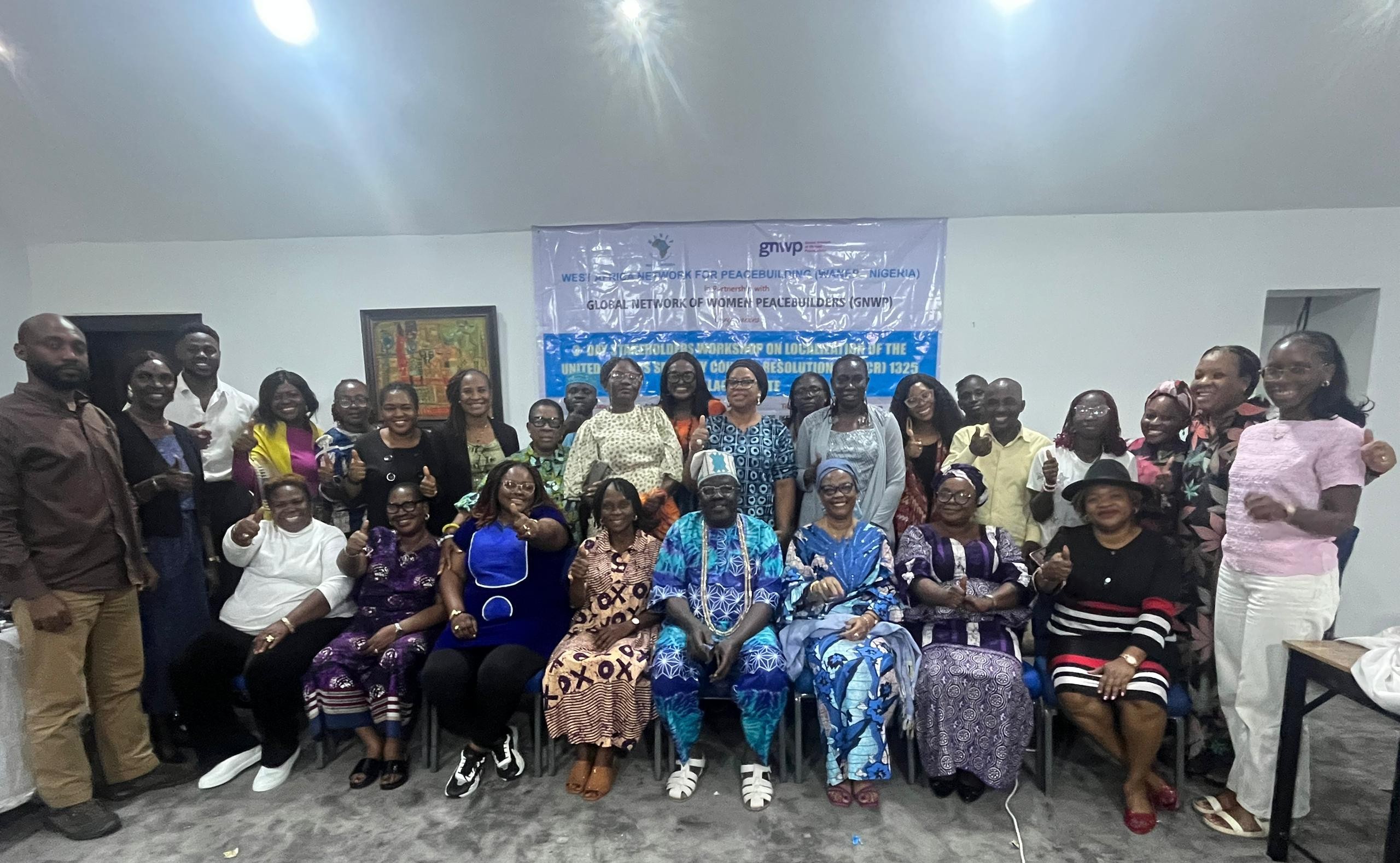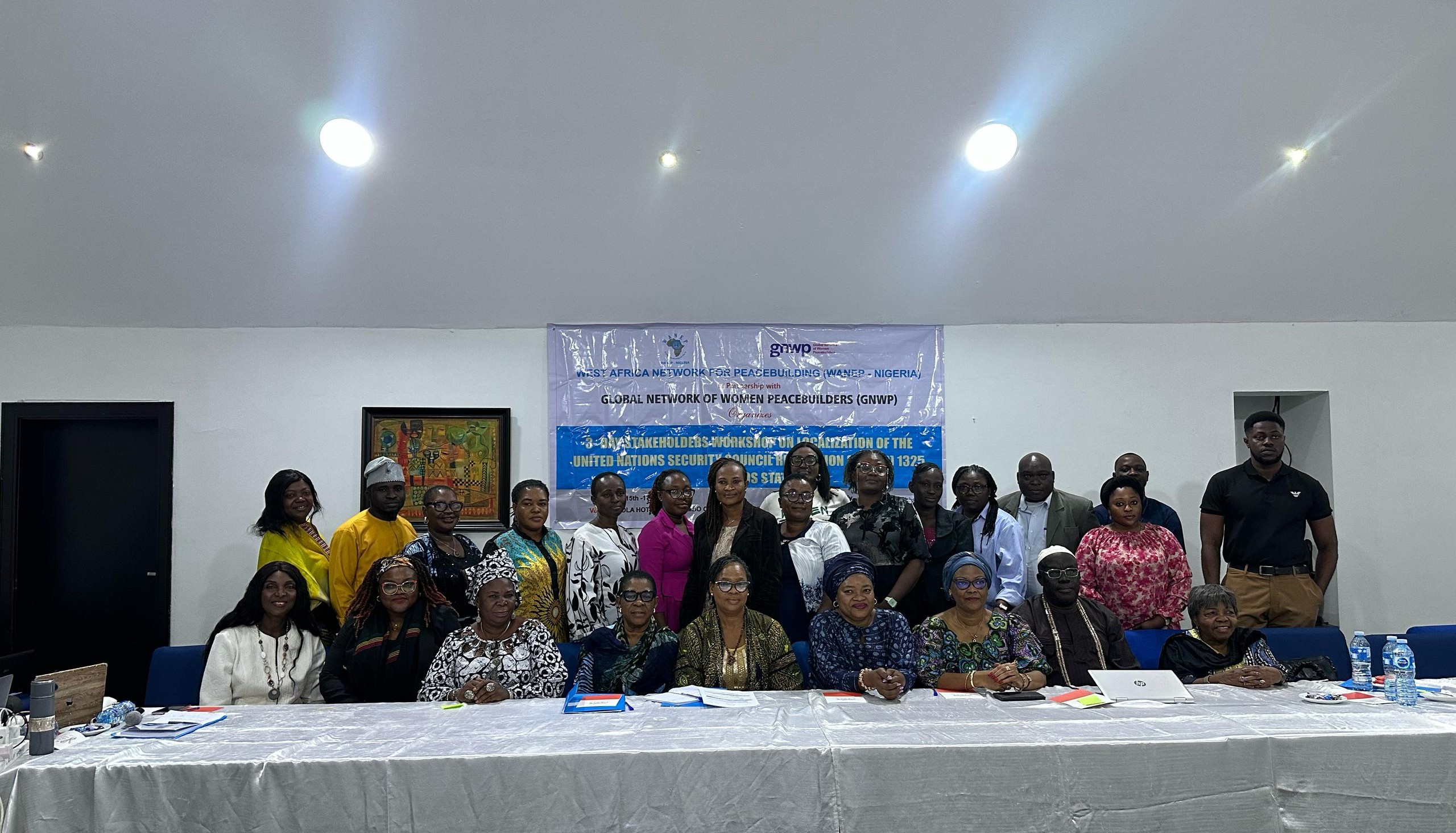Maureen Okpe
The Lagos State Government has declared its commitment to enhancing women’s involvement in conflict resolution and peacebuilding processes as it moves to localise the United Nations Security Council Resolution (UNSCR) 1325.
This comes as part of the broader effort to implement Nigeria’s National Action Plan on Women, Peace, and Security (NAP-WPS), with the aim of fostering inclusive governance and community resilience.
Speaking at the opening of a three-day stakeholders’ workshop organised by the West Africa Network for Peacebuilding (WANEP) Nigeria, Global Network of Women Peacebuilders (GNWP), and Global Affairs Canada, the Commissioner for Health, Prof. Akin Abayomi, stressed that women’s participation in peace and security is essential for sustainable development.
Read Also: WANEP harps on need to invest in peacebuilding
Represented by Dr. Oluwatoni Adeyemi, Special Assistant to the Governor on Health, Abayomi noted that conflict, insecurity, and gender-based exclusion significantly disrupt healthcare access and increase vulnerabilities, especially for women, girls, and other marginalised populations.
He affirmed the state’s resolve to adopt gender-sensitive approaches in health policy and emergency response systems, adding that Lagos is committed to amplifying the voices of women, youth, and grassroots actors in key decision-making processes.

For her part, Dr. Bridget Osakwe, National Network Coordinator of WANEP Nigeria, explained that the workshop was organised to develop strategies for integrating women into peace and security efforts within Lagos State.
She noted that while Nigeria has developed three iterations of the National Action Plan on Women, Peace, and Security, state-level implementation is vital.
“With 16 states already having state action plans and 14 others with local government action plans, and Lagos is set to join them.”
Read Also: WANEP advocates implementation, localisation of UN resolution
Osakwe emphasized the importance of implementation, noting that civil society has a role to play in holding the government accountable once the action plan is finalised.
Global Network for Women Peace building, GNWP representative Mrs. Evelyn Mbata highlighted the significance of localising UNSCR 1325 through a bottom-up approach that involves governors, councilors, traditional rulers, youth, and security agencies.
She described the GNWP’s localisation strategy, introduced in 2010, as a key tool in translating global policies into actionable community-led efforts.
She expressed confidence in the partnership with Lagos, citing past successful collaborations across Africa and beyond. Ruth Besong, GNWP Programme Officer, reinforced the need for local actors to understand the resolution’s content and how to apply it in their day-to-day roles.
She emphasised that localisation is not a one-time event but a sustained process that places communities at the centre of peacebuilding.
Mrs. Patience Ikpe-Obaulo, Head of Programmes at WANEP Nigeria, pointed out the deeply entrenched patriarchal structures in Nigerian society that continue to exclude women from leadership in peace and security matters.
She called for awareness and cultural shift, stressing that women’s perspectives are essential in policy formulation, peacebuilding strategies, and community development.
She also praised national efforts such as the launch of Nigeria’s third National Action Plan (2024–2028), while pointing out the gap between policy development and on-the-ground implementation.
However, she expressed optimism that Lagos, known for strong institutional frameworks, will bridge that gap. Stating that in addition to drafting the action plan, there would be efforts to align it with state budgetary provisions, ensuring adequate funding for its rollout across ministries.

